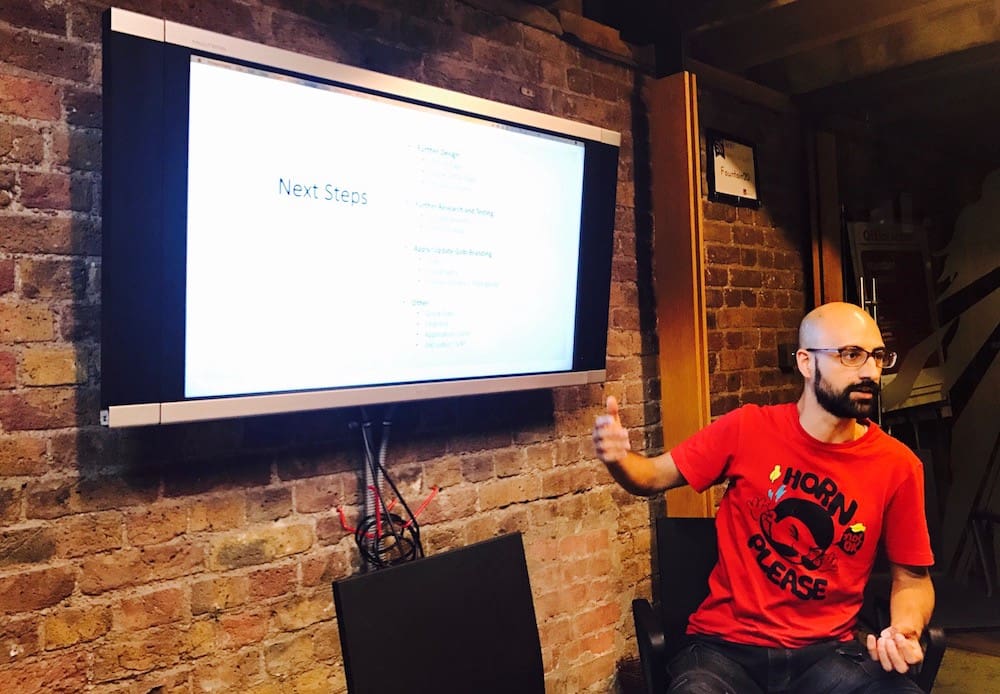Welcome back to the the third and final part of the series The Do’s and Don’ts: Communication in Growing Teams based upon the insight and experience of Hubber, Amit Patel. In this blog post he shares his final five tips for effective communication.

Amit was previously the Lead UX Instructor at General Assembly, and now he runs his own education startup, Experience Haus, hosting creative courses, workshops and events for the curious — as well as connecting students with mentors within the industry.
Take ownership of your actions
It’s important that you take ownership over your actions at work. This is the best way that you can communicate and display your integrity. Of course, there will be times when you communicate without thinking, but you need to be aware that this has the potential to create negative situations, especially when reacting to others and using words that can leave them feeling unwanted.
“Sorry I was late I was in a meeting with an executive.”
This sentance is a prime example. By saying this, you are implying that you value the executive’s time over the person’s time sat in front of you. Imagine that you were busy with your own workload and had marked out this time for the meeting. How would YOU feel if you were in that situation and someone said this to you?
It’s always far better to own the situation with a sentence like :
I was in a meeting with an executive and were discussing X and Y and that’s why I’m late.”
With this new approach, you are clearly explaining what delayed your arrival to the meeting, and will join in on a much more positive note, meaning that the meeting itself will be much more productive. Building good working relationships can be a challenge, but you can get better at improving them if the right steps are taken.
Map out your project work
Projects can last weeks, and often, months. When working on a project that involves people outside of your team (or other teams), map out whose input you need, and when you need it, as early as possible. Also, schedule in regular workshops to demonstrate the progress you are making as this allows people to confirm that you are heading in the right direction.
Preparing beforehand will also ensure that the communication channels you’ve chosen are being used to their full potential. Plus, pre-meeting and pre-workshop emails/briefings will help your attendees to show up ready to provide the answers you are looking for and know what the workshop/meeting is all about. This increases productivity as you can get right into the work rather than having to explain what the meeting is for.
Presenting and selling your work
Creative work is subjective, and you need to be able to sell it rather than simply present it. Effectively articulating your ideas and selling your solutions to problems is a key skill for Product Designers, Product Managers and various other professionals.
In large organisations, teams can take turns to each showcase their work, perhaps one team a week. When we consider the relationship between product design and, say, marketing we can almost expect there to be an overlap and so it is important for the teams to know what each other are up to. On top of just a presentation of work, these showcase meetings should be used as an opportunity to get feedback too. One major retailer here in the UK that I’ve chatted with does this amongst their large design team. They’ve found it to be very effective in ensuring there isn’t duplication of work happening, and allows teams to use and build upon the progress of other teams.
Retrospectives / Looking back
Retrospectives are a perfect time for a team, or the wider company, to come together at the end of a certain time period to see what has been working and what hasn’t. You may choose to hold these weekly, monthly or at the end of development sprints; regardless, they need to happen regularly. While I’ve been teaching, this is something that I have put a lot of emphasis upon during project work for the class. Taking time to look back and question your manner of working, as an individual or as a team is an important and worthwhile use of time. Some questions you may ask yourself:
- Are people giving feedback when its needed?
- Are we sharing important information on time?
- Are we allowing everyone’s voice being heard?
- Do we have the right people in the room when we need them?
- Am I, myself, communicating and sharing what I know in order to help my colleagues and other teams do their best job?
Be the change you want to see.
Getting teams to work well together by scheduling regular meetings, check-ins and standups is of course an easy thing to say. In large organisations, however, there is a need to not only communicate well, but use the human side of effective communication to build good working relationships. The benefits to your team (and entire company) will be massive as you are able to share your best practise and positive work, be on the same page, and head in the direction of being successful.


